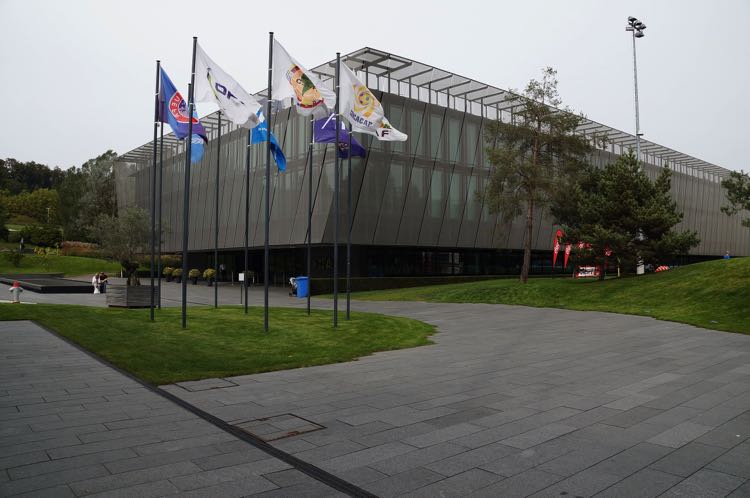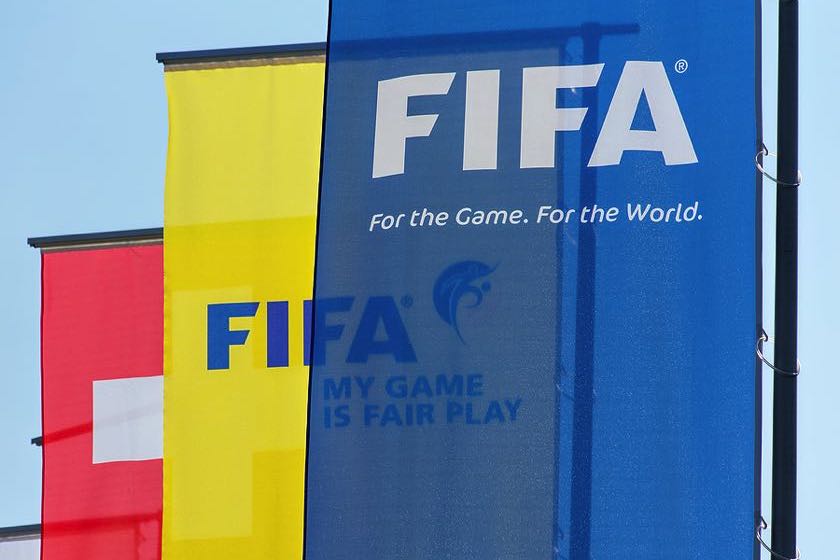The storied Italian writer, Machiavelli, once said that ‘the first method for estimating the intelligence of a ruler is to look at the men he has around him.’ Given the rogues gallery that have been voted as FIFA president or been a member of the FIFA Council, with some of those now serving jail time on corruption charges, perhaps never wiser words have been spoken.
But without rulers there would often be chaos, and so FIFA continue to govern football on a global level – for better or worse. So, what is FIFA, who is part of it and what do they actually do?
What Does FIFA Stand For?
 As you may have already gathered, FIFA is actually an acronym that stands for: Federation Internationale de Football Association, which translated from French basically means ‘International Association Football Federation’.
As you may have already gathered, FIFA is actually an acronym that stands for: Federation Internationale de Football Association, which translated from French basically means ‘International Association Football Federation’.
The name offers an insight into how FIFA started up – back in 1904, the organisation was founded in Paris but headquartered in Switzerland in a bid to create more centralised governance of football in continental Europe, plus Sweden and Denmark. Even though football was essentially invented in England and Scotland, these two countries didn’t join FIFA until 1906 and 1910, respectively.
What Does FIFA Do?
FIFA has a wide-ranging brief of almost countless organisational goals and ambitions, but at its most basic level the function of the outfit is to a) govern world football, and b) ensure that the men’s and women’s World Cups are held every four years without a hitch.
Of course, their corporate literature also promises that FIFA will achieve a number of fluffy and vague objectives like ‘growing the sport internationally’, ‘ensuring everybody has access to football’ and ‘promoting fair play’ and – stop laughing at the back – ‘integrity’. It is a common misconception that FIFA decides the rules of football. That job instead goes to the International Football Association Board (IFAB), with whom FIFA works closely but has no control of.
How Many Nations Are in FIFA?

Any country or principality, no matter how small, can apply to become a member of FIFA and play international games as long as they have the requisite infrastructure and governance on home soil. At the time of writing, some 211 countries are members of FIFA, who are then sub-governed based on their location by a FIFA offshoot:
- Union of European Football Associations (UEFA)
- Confederation of African Football (CAF)
- Asian Football Confederation (AFC)
- Confederation of North, Central America and the Caribbean (CONCACAF)
- Oceania Football Confederation (OFC)
- Confederation Sudamericana de Futbol (CONMEBOL) – South America
Generally speaking, countries are placed in their relevant confederation based upon their geography, although there are exceptions – Australia play in AFC tournaments rather than OFC, while Israel is classed as European (UEFA) as opposed to Middle Eastern, which is governed by AFC.
What Does the FIFA Council Do?
The heartbeat of FIFA is its Council, which ultimately acts as the main decision-making entity within the organisation. The FIFA president sits as the head of the council, flanked by eight vice presidents and 28 other representatives elected by the member nations, with each jurisdiction represented by at least three individuals.
There are seven different standing committees that report to the council, in areas as diverse as finance, refereeing and officiating, football development and an organising group for FIFA tournaments. These then feed information back to the council, who act accordingly.
Does FIFA Make Money?

Although FIFA is set up to be a non-profit organisation, it still generates revenue which it then distributes back into the beautiful game – and paying the exorbitant salaries of its employees, with current president Gianni Infantino reportedly trousering more than £1 million a year. Other FIFA members also benefit from receiving envelopes full of cash, but more on that shortly.
Big businesses around the world fall over themselves to be named as sponsors for the World Cup and other major FIFA-sanctioned tournaments, so they’re happy to pay big bucks to do so – Budweiser, for example, pays around £60 million every four years to be the ‘official beer’ of the tournament, even when the event is held in a country where drinking alcohol is effectively prohibited.
FIFA has other revenue streams too. They sell the TV, broadcasting and licensing rights to the World Cup, basically handing the right to show the games to the highest bidder. The best part is that they don’t even have to pay to put the tournament on – that cost is passed onto the host country. All told, FIFA makes a pretty penny every year. In 2022, the last World Cup year, their balance sheet revealed revenue of £4.5 billion, with profit in the accounting period 2019-2022 amounting to £1 billion. The organisation’s cash reserves are thought to include £3 billion in the bank.
Is FIFA Corrupt?
It would be incorrect to label an entire organisation of this size and scale as corrupt. But when the FBI comes knocking on your door, seizing assets and making arrests, it is fair to say there are some rotten apples in the barrel. There have been various arrests made over the years, but it was the 2015 corruption scandal – conducted by some of the most authoritative prosecutors on the planet – that cast the darkest shadow on FIFA.
It would take thousands of words to unravel the entirety of the case, but in short eleven FIFA officials were accused of crimes ranging from wire fraud to money laundering. Those allegations were linked to a scam that saw the FIFA delegates accept bribes from companies including Nike, who its claimed paid more than £30 million to CONMEBOL figures to retain exclusive rights to manufacture the playing kit of the Brazilian national team.
Later, a whistleblower claimed that Qatar paid more than £1 million in bribes to various FIFA members in return for them voting for the Middle Eastern country to host the 2022 World Cup. Other FIFA delegates, such as Chuck Blazer and Jack Warner, have been implicated in criminal cases having been accused of various corruption charges, while former president, Sepp Blatter, was removed from office by FIFA’s ethics committee.

